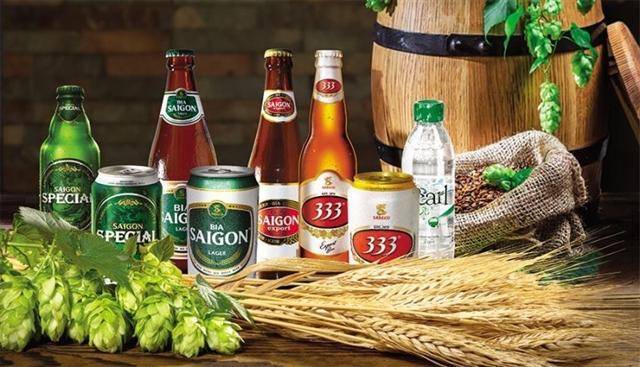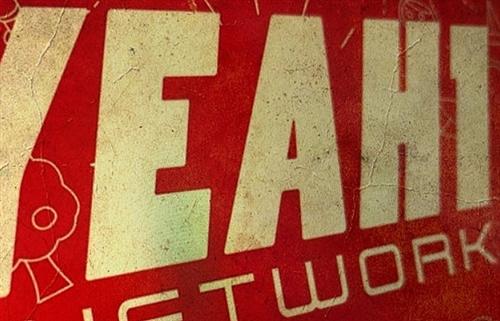Sabeco's (SAB) prospects darkened by Decree 100 and COVID-19 outbreak
Sabeco's (SAB) prospects darkened by Decree 100 and COVID-19 outbreak
The prospects of Sabeco have deteriorated on account of Decree No.100/2019/ND-CP and the COVID-19 outbreak which are expected to negatively affect beer and alcohol consumption in Vietnam.

Decree No.100/2019/ND-CP and the COVID-19 outbreak slow down beer and alcohol consumption in Vietnam, thereby negatively affecting Sabeco's business performance in 2020
|
In 2019, Sabeco posted steep growth by generating a total net revenue of VND37.89 trillion ($1.65 billion) and after-tax profit and minority interests of VND5.1 trillion ($221.74 million), up 5.4 and 21 per cent on-year, respectively, according to a report by Bao Viet Securities (BVSC).
However, BVSC believes that 2020 will be a challenging year for Sabeco. The two main sources of headwinds this year will be Decree 100/2019/ND-CP and the COVID-19 outbreak that slow down beer and alcohol consumption in Vietnam. BVSC has drawn up many scenarios for business results in 2020, but revenue will likely decrease.
In a positive scenario of a 5 per cent increase in beer consumption, Sabeco can achieve a revenue of VND40 trillion ($1.74 billion) and profit of VND5.7 trillion ($247.83 million). In the worst-case scenario of a 20 per cent fall in beer consumption, Sabeco may post revenue of VND31 trillion ($1.35 billion) and profit of VND4 trillion ($173.9 million), which is the lowest growth in the past three years.
Another challenge for the beer maker is the lack of materials, particularly barley and hops, which are mainly imported from Europe and are two indispensable ingredients for the brewing process. However, the imports of these ingredients will likely be slow as Europe closed its borders to curb the COVID-19 pandemic.
Ta Hoang Linh, head of the Ministry and Trade’s Departments of Domestic Market, European-American Market, said, “This EU disease control regulation may not affect the import and export of goods between Vietnam and the EU in the short-term because it only applies to individual travellers and basic cargo transportation and trading activities are not restricted. However, in some economic aspects, epidemic control measures will in fact slow down the movement of goods through export, transportation, customs clearance, and storage, causing disruptions or delaying economic, trade and service flows.”
The company’s representative refused to comment on the scenarios for its business results in 2020 as well as the potential lack of ingredients for brewing beer.
Sabeco shares ended at VND233,200 ($10.14) apiece on December 26, 2019. Last Friday, Sabeco shares were traded at around VND128,000 ($5.57) with a market cap of VND79 trillion ($3.43 billion).
In December 2017, ThaiBev acquired 343.62 million shares, equivalent to 53.59 per cent of Sabeco at the unit price of VND320,000 (nearly $14). ThaiBev spent $4.78 billion on this deal. However, only two years after, the Thai company saw nearly half of its investment in Sabeco eroded amidst the COVID-19 pandemic.
With the COVID-19 virus outbreak growing in scale keeps consumers away from crowded places like restaurants, negatively affecting alcohol consumption. Note that the main trading channel for Vietnam's beer industry is the on-trade channel that accounts for 70 per cent of total consumption (Euromonitor). Also, people mainly stock up on essential products rather than beer during the crisis. Therefore, Sabeco should brace for negative growth in 2020.
However, even after the COVID-19 pandemic subsides, Sabeco will continue to face difficulties. In a report released in 2016, FPT Securities warned that Sabeco shares were not attractive in the long term as liver cancer is the most common cancer in Vietnam. The increase in the incidence of liver cancer can be attributable to uncontrollable beer consumption in Vietnam.
The WHO predicts that there will be 850,000 cases of lung cancer in Vietnam by 2030. This figure will increase if the government does not take measures to control the situation. Decree 100 stipulating heavy fines for drinking is a bold move by the government in response to the warning of the WHO.
Sabeco is upgrading its production capacity at Saigon-Quang Ngai factory, Saigon-Cu Chi factory and Saigon-Soc Trang factory. According to sources familiar with the matter, Sabeco will increase its production capacity from 1.66 billion litres per year to 2 billion litres per year.
In addition to enlarging brewing capacity, Sabeco also holds more than 60 per cent of the mainstream beer segment. However, the brewery maker might lose their competitive edge with the government taking measures to limit beer consumption and consumers switch to healthier beverage choices.
To cope with this problem, Sabeco has developed new product lines targeting the mid-end segment. The company has also diversified its distribution channels to replace the on-trade channel as restaurants and pubs are suffering from the COVID-19 pandemic. As of present, Sabeco has a network of 100,000 points-of-sale nationwide. As many restaurants and pubs are shut due to the COVID-19 crisis, Sabeco now focuses its distribution efforts on convenience stores and traditional grocery stores.




















